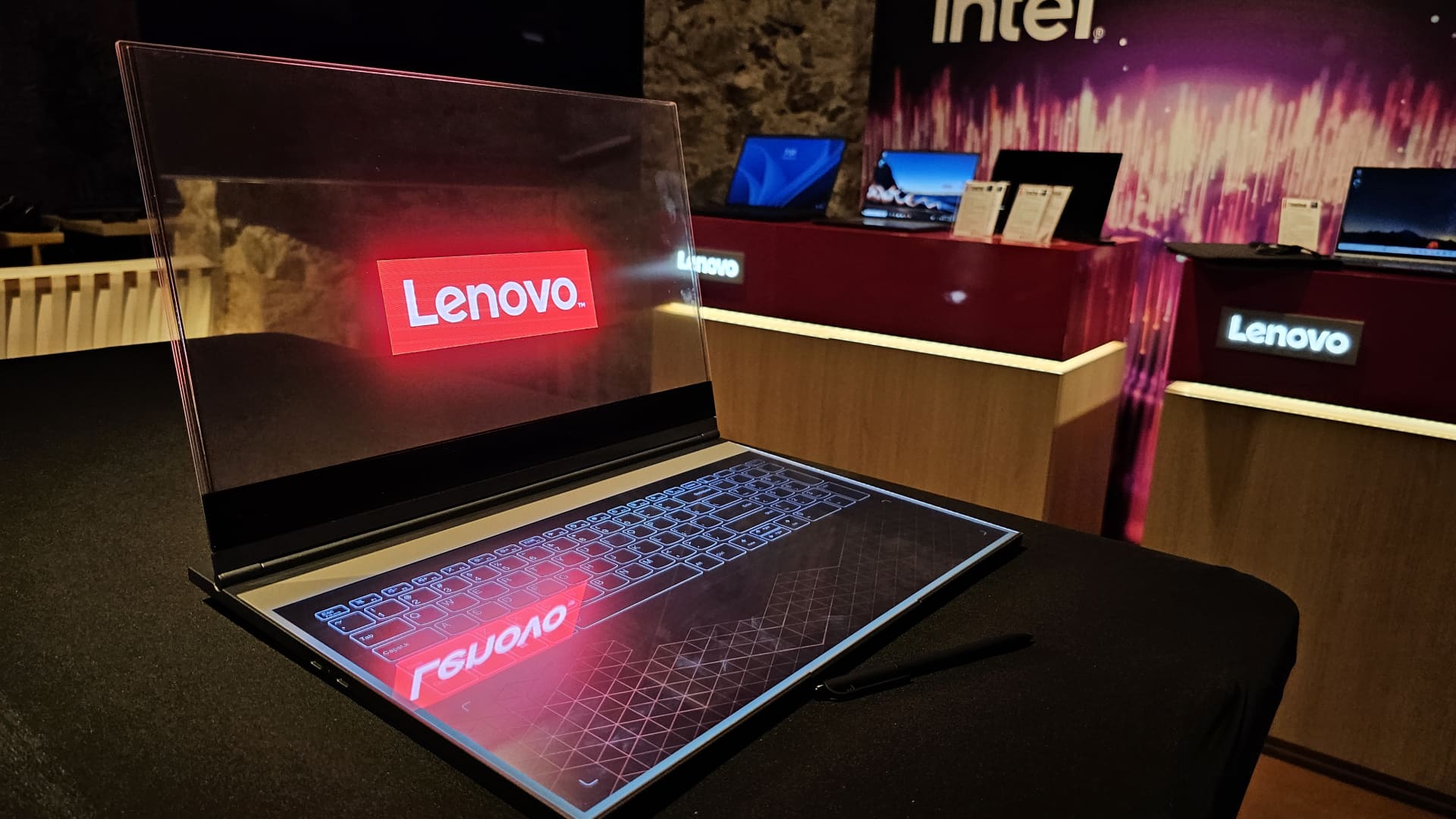
Lenovo’s concept laptop has a see-through screen.
Arjun Kharpal | CNBC
Chinese tech giant Lenovo showed off a prototype laptop on Monday that has a see-through screen, underscoring how the world’s largest PC maker is trying to innovate after a brutal couple of years for the market.
The laptop is equipped with a trackpad which features a touch keyboard and a stylus to draw or navigate with.
The obvious question is: Why would you want this kind of device? Lenovo showed off some of its capabilities.
A representative who ran a demonstration for CNBC placed an artificial sunflower behind the screen. The camera built into the laptop was able to identify the object as a sunflower then provide information about it, using artificial intelligence technology.
In on demonstration, Lenovo showed how the laptop could identify an object behind the screen and display information about it.
Arjun Kharpal | CNBC
Another use, the representative said, is in a construction scenario. For example, if an architect is designing an extension on a house, they could see the house through the screen, and use the stylus to draw their design to envisage what it may look like.
Like all new technology, there may often be uses not yet imagined.
The technology is similar to augmented reality in some senses. AR, which has been popularized by glasses or headsets like Apple’s Vision Pro, is when digital content is superimposed on the real-world you see in front of you.
Since the laptop is a concept product, Lenovo has no plans to sell the device.
However, PC makers are looking toward the future after a difficult couple of years. PC sales spiked during the height of the Covid-19 pandemic, but as people returned to work, they began to plunge. Last year, PC shipments fell nearly 15% year-on-year, according to Gartner.
A side view of Lenovo’s transparent laptop screen.
Arjun Kharpal | CNBC




